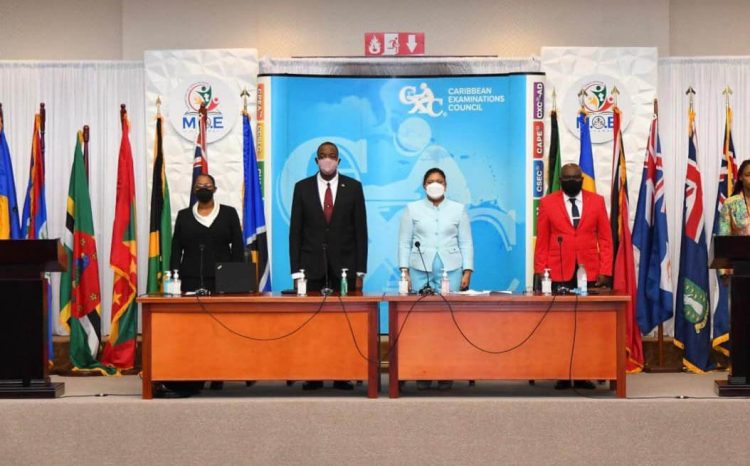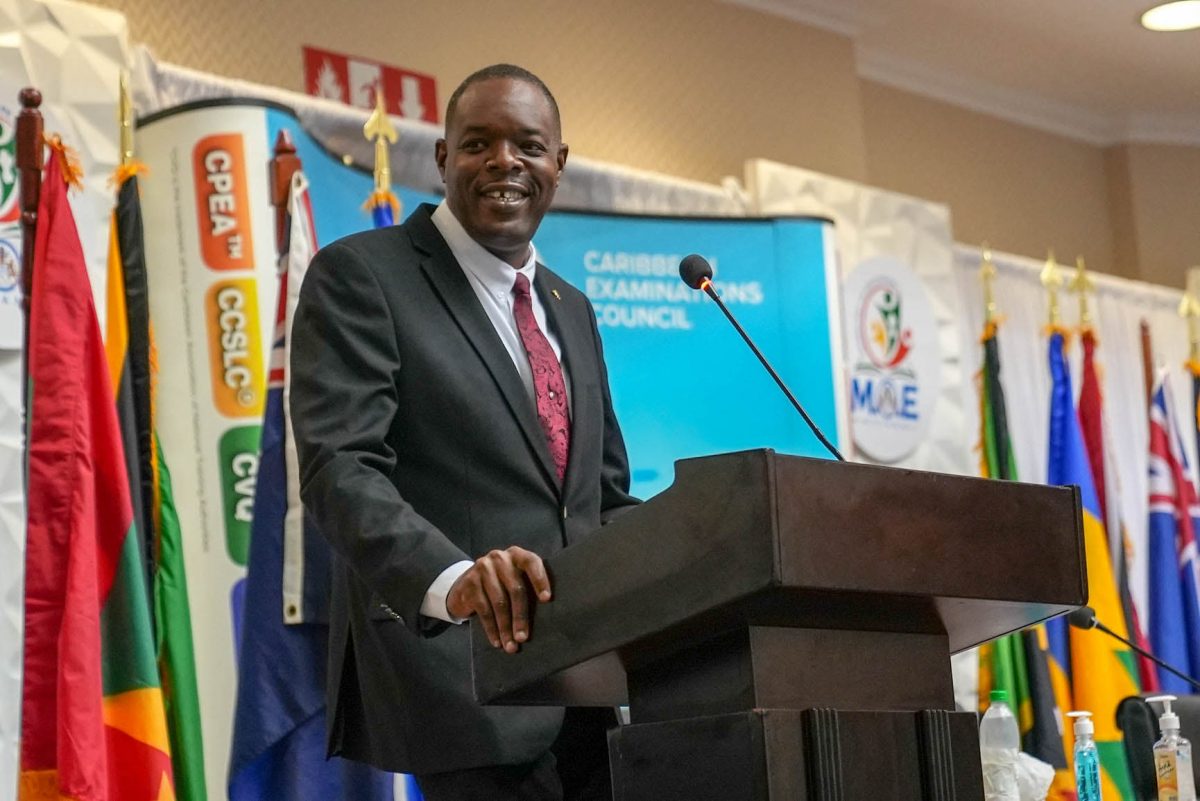School syllabuses must be reconfigured to teach key competencies that will enable students to function in any environment, according to Caribbean Examinations Council (CXC) Registrar and Chief Executive Dr Wayne Wesley, who yesterday said much of what was taught in school is no longer relevant in the working world.
Delivering his remarks at the announcement of the 2021 CSEC and CAPE results here, Wesley said students are overburdened by extra lessons as teachers aim to complete curricula which are content-focused.
“We have an attitude for extra lessons. We are pressuring the students, giving them information overload and when they are stressed out we wonder what is happening,” Wesley argued. “We need to find an approach that creates an appropriate balance that allows students to demonstrate the critical competencies required to function in society and have the ability to apply to any content rather than focusing on finishing the curriculum.”

Wesley also stressed that the COVID-19 pandemic has shown that teachers will at times not be able to complete the curriculum and students have missed out on learning content catered for. However, he added that critical competencies and foundation knowledge that were learnt had to be applied not only by present students but past also as they navigated the working world and society by extension. “…The foundational skills and competencies equipped us with the capabilities to perform in society and that’s where we need to go. The core competencies would develop abilities of any students,” he asserted.
He further pointed out that the reconfiguration of the syllabuses will not only change the curriculum but also the construct of examination and assessments. He said in this case, focus will be placed on the core competencies to be examined rather than content coverage.
Wesley indicated that under the CXC 2021-2025 Strategic Plan, the regional body is engaged in research and development to test whether it is needed to shorten content to capture “critical body of knowledge.”
With data from CXC and universities, he said, CXC is aiming to test the possibilities of including areas for students to master that will assist them in performing in any environment after leaving school.
Acknowledging the examination council is not immune to the COVID-19 pandemic, Wesley said the regional education system needs to be rebuilt not only to be stronger but also to be sustainable. “[The] COVID-19 experience served to highlight weaknesses in the regional educational system and points to the urgent needs [for] an approach for a sustainable development,” he noted.
The pandemic, he said, tested the inadequacies of the Caribbean educational system as it caught many at different levels of preparedness. As a result, he said that in order to rebuild the sector to combat the challenges faced, the sector must be resilient and robust in its transformative development.
The new system, Wesley emphasized, must cater for and aim to offer universal access and universal quality education across the Caribbean.
With such a system, he said, educators will not have to worry how they prepare students and “worry about giving extra lessons all over the place” but rather worry about ensuring that students demonstrate the requisite competencies to perform.
CXC’s five-year strategic plan, he pointed out, will seek to achieve this goal, as the vision is to create a digitally transformed enterprise, providing quality relevant and globally recognized educational services.
He also stated that students will now be a part of CXC’s decision making. Wesley said students are their most critical stakeholders and after last year’s protest over grades, led by Guyanese students, it has recognized the need to include the views of students in decision making.
In her feature address, Minister of Education Priya Manickchand also highlighted the impacts of COVID-19 on the educational system.
She said that many faced stark socio-economic disparities that caught students in a digital divide and tested teaching methods and their delivery. She said that the pandemic illustrated a dark picture of those who were able to adapt and those that were ill-equipped to undertake adjustments in the sector.
“If we are honest, and we should be, the pandemic caught us at widely different levels of readiness for the unprecedented demands and new modes of education delivery. Equally notable is the fact that our systems responded to the disruptions with varying degrees of alacrity,” the minister said before stressing that “it is vital that we create sufficient institutional, organizational and individual capacity for crisis… management…”
Looking to the future, she said, the developments made during and after the pandemic must be sustained. She said as countries and educators examine strategies for the advancement of education, equal attention must be given to address the structural and systemic barriers that were faced.
The revamped education system, she added, must benefit from the support and sharing of knowledge between sister territories and she challenged CXC to take the lead in such an initiative.
“The issues of learning loss, student displacement, dropouts, curriculum coverage malaise and anxiety to name a few, can be best surmounted within a cooperative context,” she noted.
Manickchand also applauded CXC’s innovative measures during the delivery of the exams and special considerations for students.





